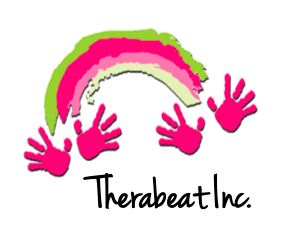“Speak to one another in psalms, hymns, and spiritual songs, singing and making melody in your heart to the Lord.” –Ephesians 5:19
What a blessing that being an intern at Therabeat, Inc. has allowed me the opportunity to work not only with children, but now also with older adults. Alzheimer’s Disease (AD) is something that effects so many people of this population, and it is something that is very close to my heart. My grandmother of 89 has been diagnosed with AD for a few years, and my family and I have begun to see some of her cognitive abilities begin to fade. However, this is the amazing woman who taught me the meaning of music, and how precious of a gift it is. Growing up, she was the one who encouraged me to sing and explore music more than anyone else in my life. She always said “If music can soothe the little babies, then God must have meant it for all of us.” I truly believe that her influence is a major reason why I was led to the field of music therapy! So now that she has been effected by AD—it’s pretty awesome to see how music plays a therapeutic role in her life, and also the life of so many other people suffering from the same disease.
A lot of research has been conducted to give some evidence to show that music (especially live music between two or more people) accesses memories and personality in people that may seem lost as cognitive abilities of individuals with AD. “The Role of Singing Familiar Songs in Encouraging Conversation among People with Middle to Late Stage Alzheimer’s Disease” in the Journal of Music Therapy (JMT) is a great article that demonstrates the role that music therapy plays in helping a deep sense of self emerge. In this article, the researcher notes that patients with AD often lose their conversational skills. This includes a lost in speech fluency, decrease in spontaneous speech, difficulty naming things, and a loss of meaningful content of speech. This can be frustrating for the patients and for families as well. However, in this study, group music therapy with patients with AD was shown to improve conversational and spontaneous speech. This occurred through singing music from the patients’ formative years. In a disease in which the hallmark is memory loss, music elicits not only memory of melody and lyrics, but also of memories and emotions associated with the music. In this study, music therapy was shown not only to elicit conversation, but to access long forgotten emotions, a sense of self, and a sense of belonging. This helps to improve the quality of life for patients with AD (Dassa, 2014).
I saw this in action this past weekend while singing some old hymns with my grandmother I mentioned earlier who has AD and my grandpa, who does not have AD. They often have trouble communicating as the cognitive abilities of my grandmother decrease. However, whenever we start to sing some of their favorite old hymns—the verse in Ephesians quoted above rings so true! Communicating and sharing with one another through song is such an encouraging and edifying experience for them both. My grandmother is starting to forget lots of things, but she remembers all her old favorite hymns—even some that she hasn’t sung since childhood. After singing together she said to the family—“When you can’t do anything else, you can always sing. And this will bring joy to your heart.” To me, this quote sums up how special and effective music therapy is to patients with AD—it provides an outlet for success and joy in a situation that seems hopeless.
Dassa, A. (2014). The Role of Singing Familiar Songs in Encouraging Conversation
Among People with Middle to Late Stage Alzheimer’s Disease.” Journal of
Music Therapy 51(2), 131-153. doi: 10.1093/jmt/thu007.

